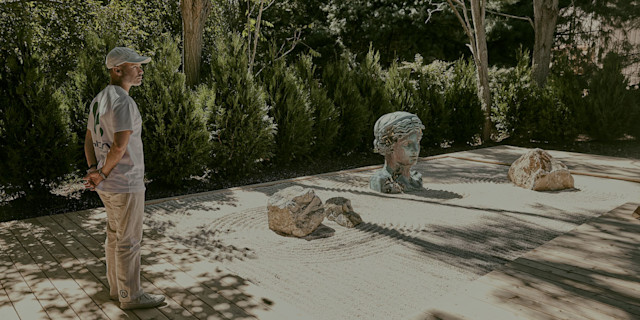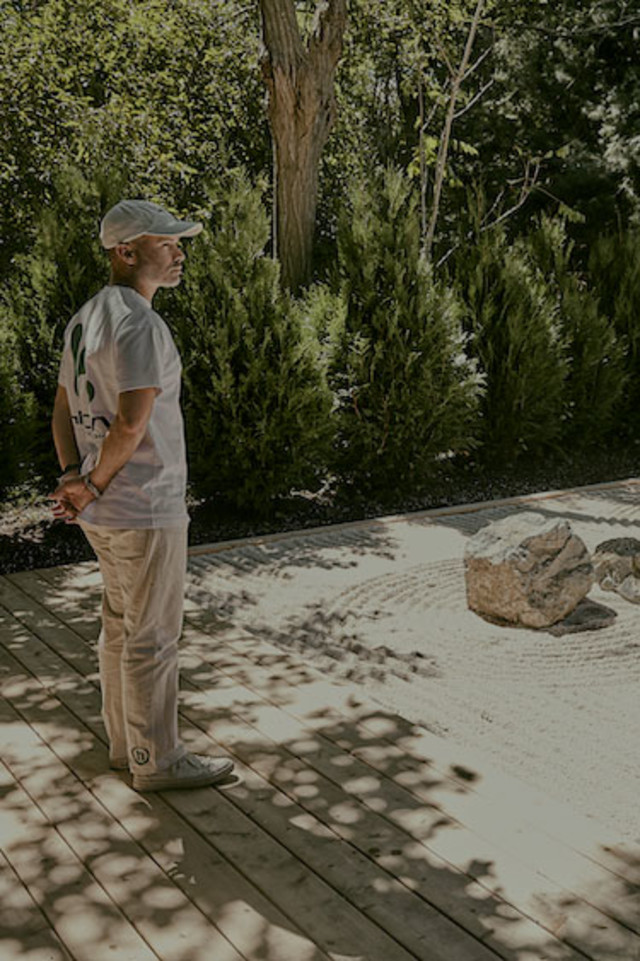
PRACTICE EMOTIONAL REGULATION.
It’s a strategy that can help you to manage stress in the moment, says Minaa B., writer, wellness coach, and licensed therapist. Breathing exercises, movement, and meditation are all useful skills but here’s a lesser-known strategy: Utilize your five senses as a grounding technique.
You might focus on the things you’re hearing in the room, an object you see, or even a color. “Often, our mind takes us to many different places and the goal [of this exercise] is to center ourselves back to where we are,” she explains. Another trick: Nostalgic cues (a song, picture, or object that triggers specific memories and fills your mind with positive thoughts) engage memories while bringing you back to the present.

MANIPULATE YOUR CHRONOTYPE.
After two days of restricted sleep, our ability to make good decisions without errors is three times worse and after four days, an individual's bench press can drop by over 20 pounds, according to W. Christopher Winter, MD, neurologist, sleep researcher, and author of The Sleep Solution.
If you're a night owl who needs help falling asleep earlier to get your necessary shut-eye, you can signal to your brain that it's time to go to bed by reducing light. Think: Dim your lights, use blue light-blocking glasses, or sleep with an eye mask. On the flipside, light sends a cue to your brain that it's time to be awake, so get outside or in front of a lightbox first thing in the morning.

SCIENTIFICALLY MANIFEST YOUR DESIRES.
The law of attraction says that we can attract the things we want in life. “That may sound a little woo-woo,” says Tara Swart, MD, Ph.D, neuroscientist, senior lecturer at MIT Sloan, and best-selling author of The Source, but there are actually scientific principles behind the law of attraction that you can tap into.
The first: Abundant thinking. “[It’s] about using the power of neuroplasticity to override negative thinking patterns and gear your brain to think more in terms of optimism, that there’s enough resources out there for everyone,” says Swart. “If you have a particular recurring negative thought, try this:
1. Attempt to distil what the subconscious belief under that thought might be: What do you believe about yourself, that you don’t deserve that thing you’re wishing for?
2. Then, create a mantra or positive affirmation so that every time you have that thought you can immediately replace it with this positive mantra.” This helps to cultivate the idea that you do deserve these things and you will be proactive about going out and getting them.

FOCUS ON THE ONE.
Nick Winkelman, Ph.D., world-renowned strength and conditioning coach, (literally) wrote the book on the art and science of movement: The Language of Coaching: The Art & Science of Teaching Movement. One of the keys to mastering both art and science as a coach and also as a high performer is via language and cuing. “Make the one thing the one thing when it comes to learning movement,” says Winkelman.
In other words, while you can remember multiple “cues” at once when, say, you’re about to do a kettlebell swing, you can only focus on one of them at a time (like reaching the bottom of the bell at the wall behind you or shooting the bottom of the bell at the door in front of you). Pro tip: External cues (think: imaging you’re sitting back onto a chair) tend to get better results than internal ones (think: hinge at the hips 90 degrees).

EAT YOUR PHYTOCHEMICALS.
The single most important thing you can do to upgrade your biology is to eat well, according to Mark Hyman, MD, internationally recognized leader in integrative health. He urges us to rethink food as medicine. “It’s like code that sends instructions for what should be happening to your body,” he says. Of several important facets in a “good” diet, a standout includes getting plenty of phytochemicals, powerful compounds that have antiviral effects. Hyman cites Himalayan tartary buckwheat as a great source (it has over 132 phytochemicals) in particular and you can find a recipe for Himalayan tartary buckwheat pancakes in his cookbook. You can also find phytochemicals in foods like spinach, cabbage, dill, chili peppers, apples, broccoli, olives, green tea… the list goes on.

CULTIVATE OMOTENASHI.
Omotenashi is a Japanese word that translates to “hospitality” but what it really means is the literal care of everything you do in your life, from the way you walk to the way you hand somebody a business card with two hands, explains New York City-based visual artist Daniel Arsham, adding that Japan has had a big influence on his life.
Arsham brought this concept into his Zen Garden in the Hamptons where Equinox and American Express Platinum Members recently gathered for a meditation as part of Camp Platinum. One way he brings Omotenashi into the garden is by raking a new pattern, like waves rippling out from a surface or concentric lines, into the gravel each day.

